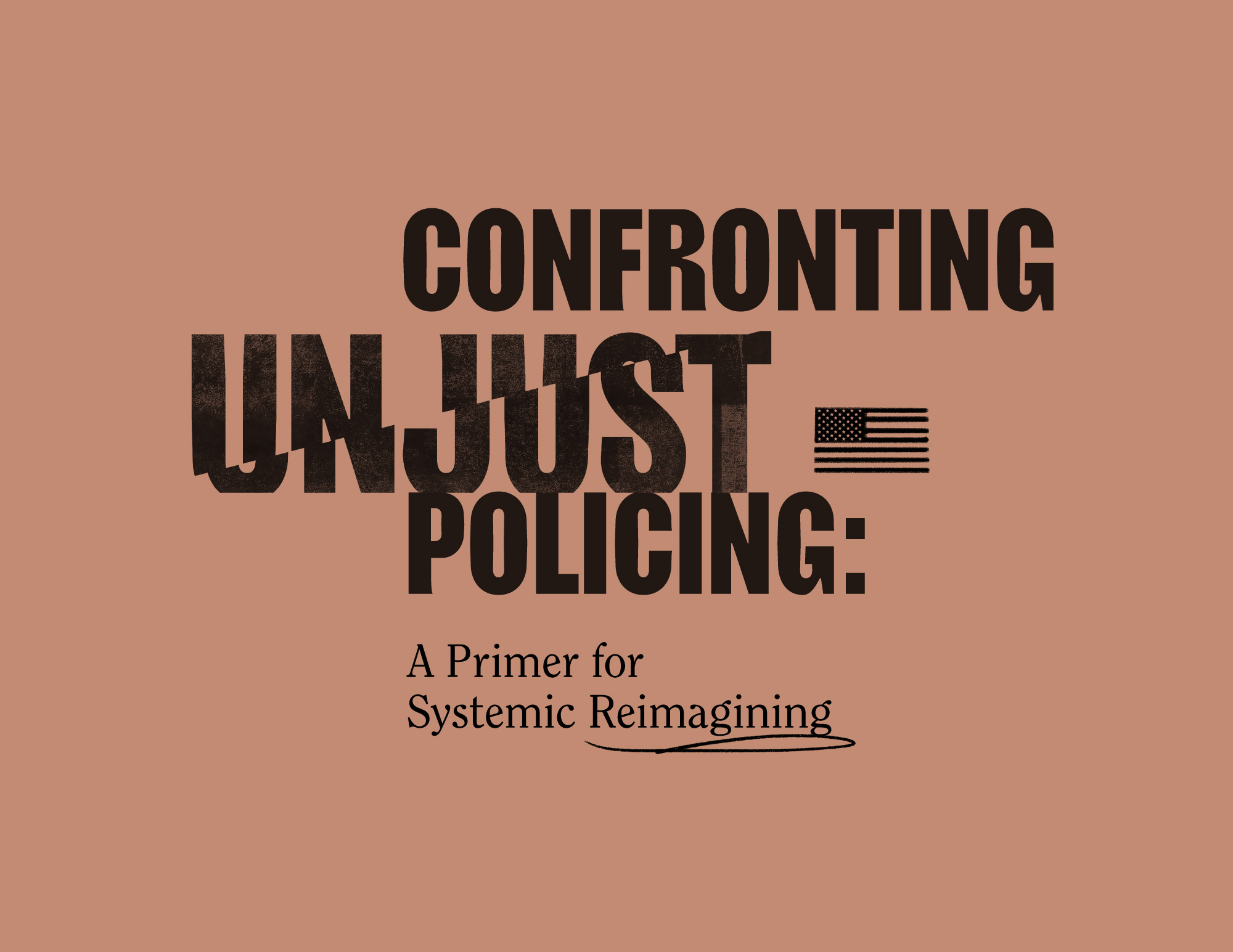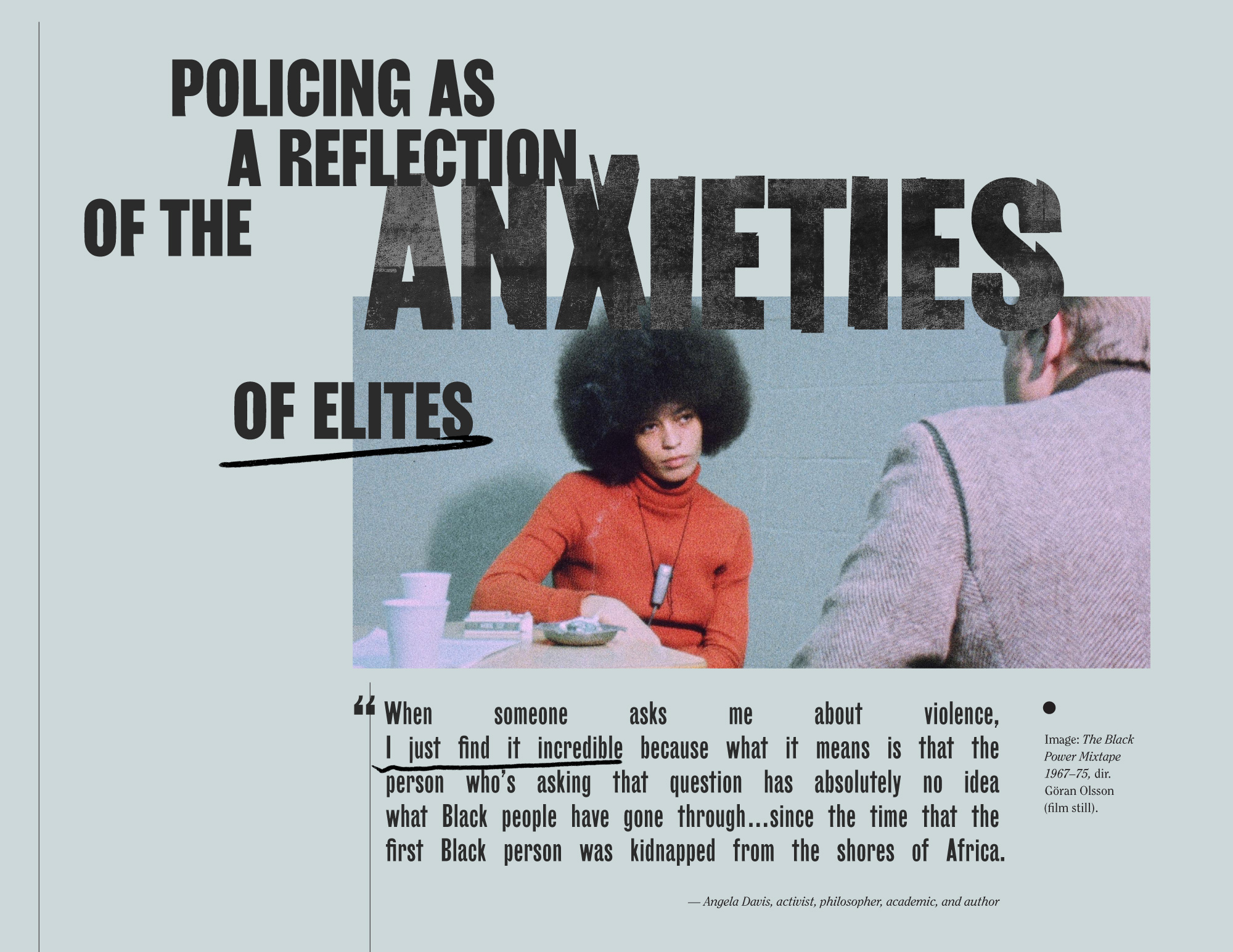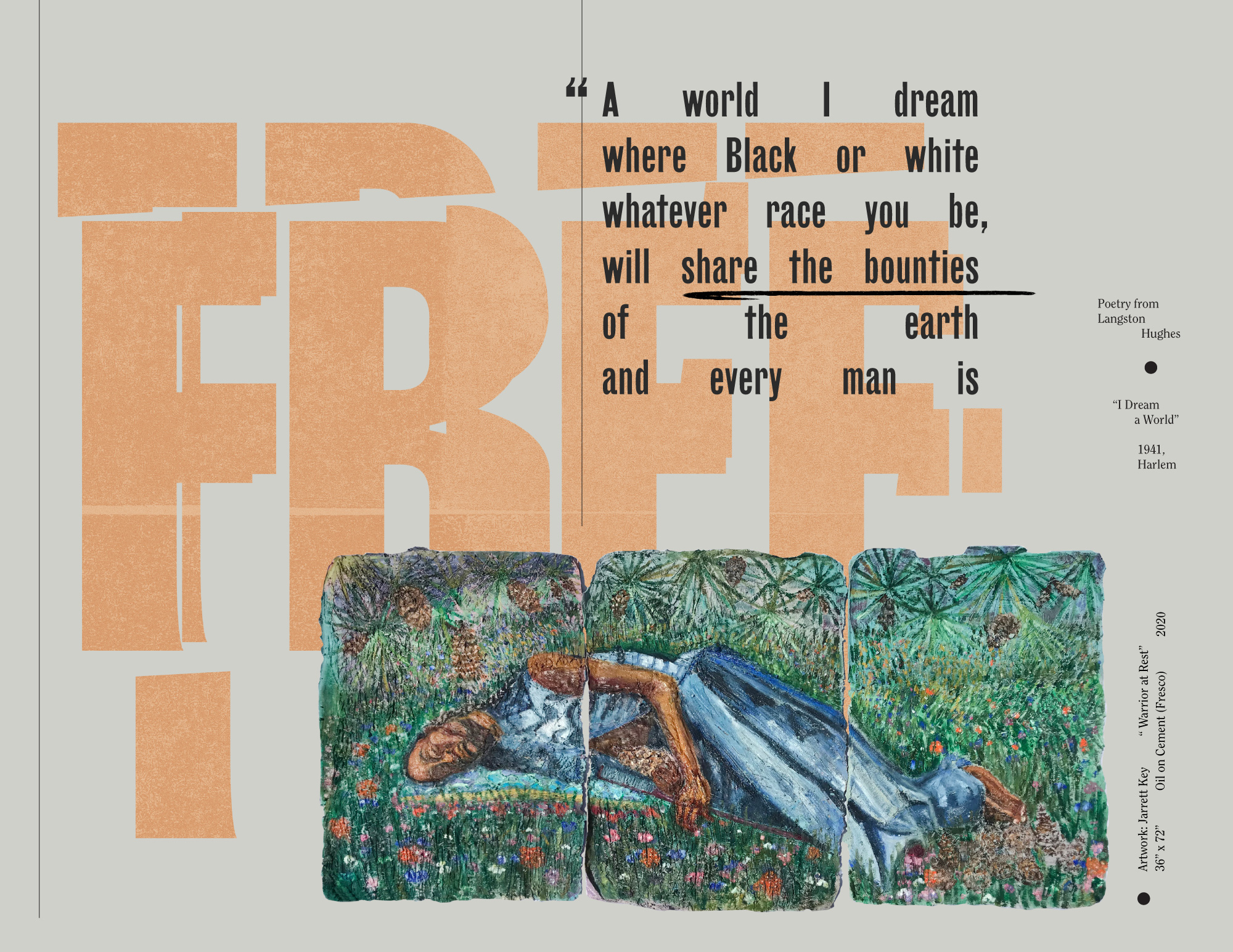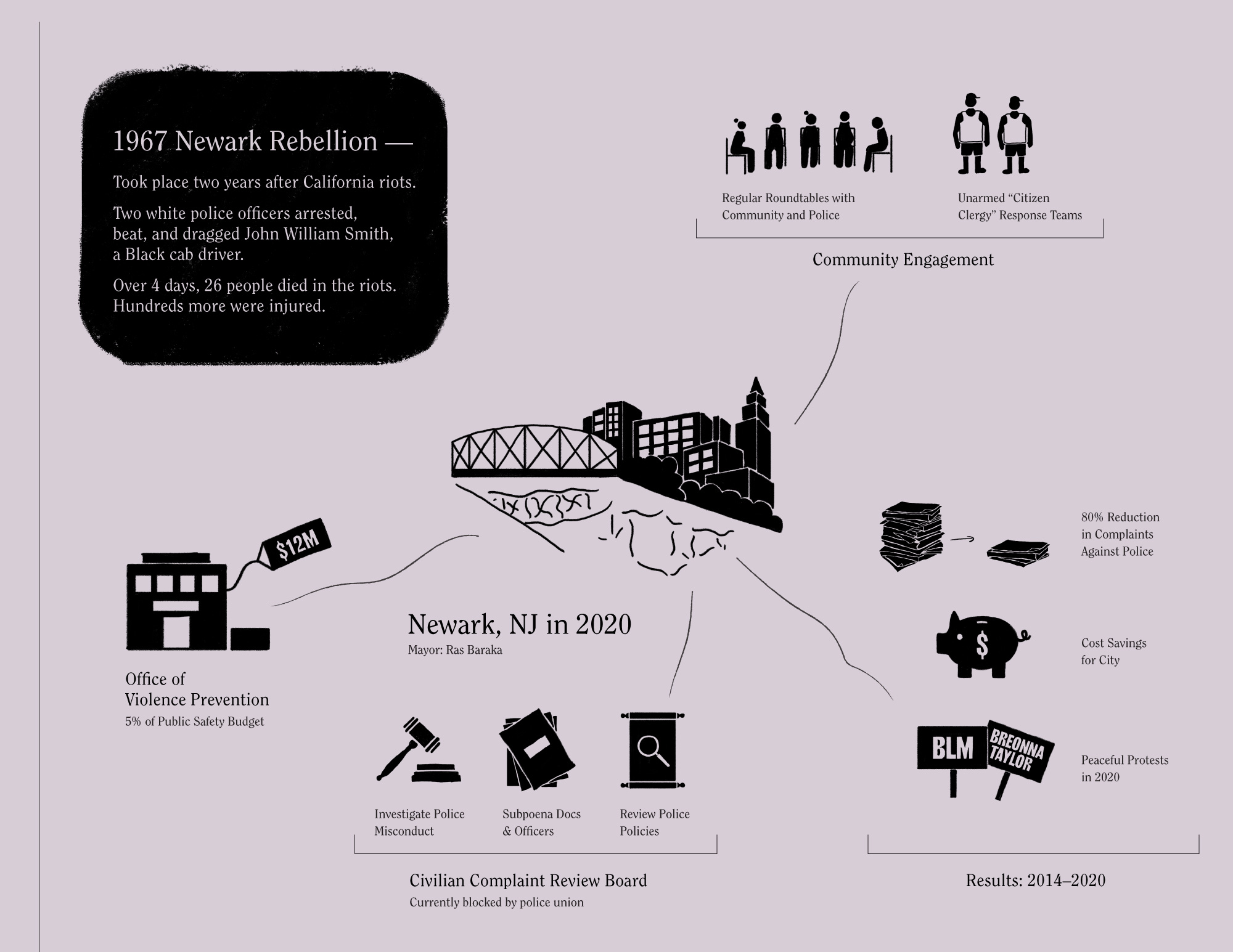
Confronting Unjust Policing: A Primer for Systemic Reimagining. Writing by Megan Wicks, Waqas Jawaid, Andy Chen, and Daniel He. Design by Isometric Studio
On Memorial Day 2020—a day honoring Americans who had sacrificed their lives fighting for values like freedom, equality, and justice—a 46-year-old Black American man was killed in Minneapolis, Minnesota during an arrest for allegedly using a counterfeit $20 bill. His name was George Floyd. George was suffocated to death by police officers in broad daylight. For eight minutes and forty-six seconds, a police officer pressed his knee on George’s neck while his partners held down George’s body and fended off horrified bystanders.
George pleaded with the officers that he was claustrophobic and that he could not breathe. He was already handcuffed. In his last moments, he called for his deceased mother. George’s murder is not the first nor the last case of overwhelming and unjust violence inflicted on a Black American by a police officer for a minor offense or for no offense at all.
People across the world from all backgrounds spilled out into the streets to register their outrage. As designers and writers, we felt called to bear witness in this moment, even as we sought to understand and communicate the problem of widespread and deeply rooted racism in American institutions. We also felt we had a responsibility to create the space to imagine a different and better future.
Our studio, Isometric, in collaboration with Megan Wicks, a Black Ph.D. student at Princeton University, created Confronting Unjust Policing: A Primer for Systemic Reimagining, which provides tangible steps to rethink institutions from the ground up and examine meaningful alternatives. It features reproductions of artworks by Jarrett Key, a Providence-based Black artist whose work integrates movement, language, and music.

The primer is a throughline that connects historical context, case studies, quotations, and infographics.
The primer addresses urgent and necessary questions: In what ways is injustice embedded within our culture and institutions? How can we begin to situate this violence within America’s historical context? And how can we critically evaluate and creatively reimagine the systems of our country to ensure that every American can live a truly free life?
When we began writing the primer, the city of Minneapolis had agreed to activists’ demands to “defund” and “dismantle” the police in the wake of the George Floyd murder. It has since walked back these promises, acceding to fears that abolishing the police would result in anarchy and violence—anxieties stoked by the Trump administration to demonize the Black Lives Matter movement.
If you are reading this, you are likely wondering if there is any way forward in a debate that has become so polarized and intractable that nothing seems to change. Indeed, there is a growing rift on the American political left between “moderates” and “progressives.” Much of the frustration centers around the vocabulary of “defunding” the police, which in its ambiguity has become demonized as a “radical left” prescription for disaster. Our standpoint is that police brutality against the Black community is a both an emergency situation and a systemic one—requiring multiple, simultaneous registers of response.
Like you, we are tired of waiting for “reforms” that seem to make little impact. The primer argues, however, that we need to move beyond convenient catchwords like “defund,” and to name and define the specific resources we offer as replacements. It’s possible to believe that prisons and policing are intractably racist institutions that should be abolished in their current form—and to advocate for immediate term change as a first step that will save lives by overcoming the partisan divide. While we don’t have all of the answers, we aim to show how scholars and activists have tackled these very issues by placing them within the context of history and lived experiences.

The primer features reproductions of artwork by Jarrett Key, a Providence-based Black artist.

The primer presents case studies and institutional frameworks that can serve as alternatives to unjust policing.
One of the most toxic and powerful techniques of white supremacy culture is to make us feel powerless to confront injustice. It does this through distraction and misdirection, sowing discord through gaslighting and by constantly trying to flip the script. By focusing public attention on the safety of “suburban housewives” rather than Black Americans who are actually being killed by lethal police force, Trump and his enablers are in effect saying that Black lives don’t matter. Those who dare to dissent against this racist strategy are painted as un-American enemies who seek anarchy and violence, though 93% of racial justice protests this year were found to be peaceful.
By making the challenges seem so intractable and consensus so improbable, white supremacy culture maintains an absurd and unjust status quo. It finds ways to frame Black victims of police violence as the “real” criminals. When Derek Chauvin asphyxiated George Floyd to death, the defense memo claimed that Floyd was committing a felony by trying to use a fake $20 bill, and that he was under the influence of drugs—“acting erratic” with “foam around his mouth.” This animalizing description perfectly crystalizes the racist narrative that Black Americans are not merely criminals in need of punishment; they are not even to be regarded as full human beings who are deserving of justice and dignity.
If you are outraged, understand that you are not alone. Your voice matters, and it is up to you to raise it in defense of Black lives. We are with you, and we are here for you. We are a community of literal millions around the world. One of the most powerful things you can do is to have a conversation about unjust policing with the people closest to you—not an adversarial debate but an intimate sharing about why it matters to you. If you find them helpful, use the insights and examples in our primer as a way to begin a conversation that is as rooted in fact as it is in personal truth.
White supremacy culture thrives in isolation and silence. It withers in the face of our collective imagination. History has proven that progress is possible but not inevitable. There are loud voices that spew racism from the presidential podium and many more quiet ones that tacitly support it. We believe in the capacity of our fellow Americans to confront and reimagine unjust systems. We can build a more equitable future if these voices shift public opinion to support a culture of empathy and justice. We must do so with an understanding of history and while incorporating a diversity of perspectives—especially of people at the margins.
Anti-racist work intersects with indigenous struggles, environmental justice, feminism, immigrant rights, LGBT advocacy, disability rights, and other efforts. We all benefit from the simultaneous uplifting of these causes. Our struggles are intertwined, as are our futures. We must face injustice in solidarity—with honesty, hope, and creativity.
